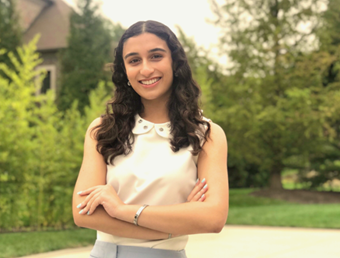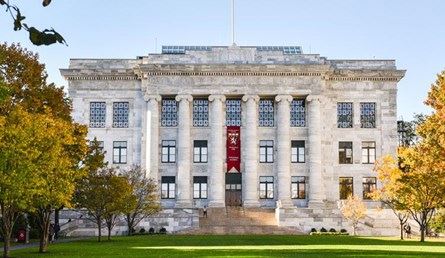
For high school students looking to ace math competitions or get a leg up on extracurriculars for college applications, these top summer math programs will push you intellectually and prepare you for your next steps into the world of advanced mathematics.
AwesomeMath
This summer program, open to middle and high school students worldwide, is perfect for those who want to hone their mathematical skills or to train for math competitions like AMC10/12, AIME, or USA(J)MO. Classes are taught online Monday-Friday and feature a 90 minute lecture and 60 minutes of problem-solving every day. Students can choose one of four tracks: Algebra, Combinatorics, Geometry, or Number Theory. Additionally, students will take two graded tests, have access to focused attention during instructor office hours, and have opportunities to socialize with classmates.
Mathematical Olympiad Summer Program
Also for students interested in competitive mathematics, the MOSP prepares high schoolers for Mathematical Olympiad programs like the International Mathematical Olympiad though three weeks of intensive programing. The course, hosted at Carnegie Mellon University, is only available to top United States of America Mathematical Olympiad contenders and is free to attend. MOSP participants are divided into three cohorts that participate in three daily instructional lectures and problem solving sessions. Students also regularly perform olympiad tests in groups and as individuals.
Stanford University Mathematics Camp
Open to rising sophomores and juniors, SUMaC presents advanced students the opportunity to develop their mathematical reasoning through a three-week online intensive. The camp is broken into two programs. The first one, Abstract Algebra and Number Theory, introduces course concepts through motivating problems. The second, Algebraic Topology, introduces and analyzes topographical concepts through an algebraic framework. Admission is based on a holistic approach that considers grades in math classes, teacher recommendations, standardized exam scores, and the SUMaC exam. Financial aid is available for those demonstrating financial need.
The Ross Mathematics Program
The Ross Program is based on the motto “Think deeply about simple things.” In this six-week course, students do just that by diving deeply into the key aspects of Number Theory in order to foster innovative thinking about the world around them. The program is in-person and is based in two different locations: Ohio Dominican University in Columbus, Ohio, and Rose-Hulman Institute of Technology in Terre Haute, Indiana. High school students ages 15 to 18 are eligible to apply. Admissions are determined based on transcripts, recommendations, application essays, and the successful completion of advanced math problems. Financial aid is available for those who qualify.
Program in Mathematics for Young Scientists
Hosted at Boston University, PROMYS brings 80 young mathematicians to campus to study mathematics. Programming includes daily lectures on Number Theory, advanced seminars across a variety of mathematical fields, guest lectures, group-based lab research, and individual research projects. In addition to mathematics, PROMYS provides opportunities for social interaction, including sports, community building activities, and musical instrument practice. Students must be at least 14 years old and must have completed their freshman year of high school. Applications consist of a letter of recommendation, high school transcripts, an application form, and solutions to a complex set of math problems. PROMYS welcomes applications from international students and encourages applications from students of identities historically underrepresented in STEM fields. Tuition is free for students whose families earn less than $60,000 annually and features reduced tuition options based on family income above $60,000.
Summer Math Program for Young Scholars
Hosted by New York University’s Center for Mathematical Talent, this three-week online intensive introduces talented high schoolers from grades 9 through 11 to college-level mathematical concepts such as Number Theory, Graph Theory, Group Theory, and Computer Science. Programming combines lectures with problem-solving sessions by graduate assistants at NYU. Students will also have the opportunity to attend talks on the application of mathematical concepts in the sciences. Applicants must have completed Algebra I with a B- or higher.
Summer Mathematics Research Training High School Camp
This free residential camp invites 28 students, ages 14-18, to Texas A&M University for a two-week mathematical intensive. Programming revolves around Number Theory, Combinatorics, and Algebra, but also addresses applied mathematics. Six days a week, students will listen to lectures then work on problem solving with their counselors. The program also features daily group meetings and guest lectures. Applications consist of a letter of recommendation, an essay, and an application form.
Department of Mathematics Summer Program, University of Chicago
The University of Chicago’s summer math program is open to Chicago-area students grades 7-12. The day camp divides students into three age-based cohorts for a series of daily lectures and problem-solving sessions. On even-numbered years, the program focuses on Number Theory, and on odd-numbered years the program focuses on Geometry. Applications consist of an application form, an essay, a letter of recommendation from a current math teacher, a teacher questionnaire, and current transcripts. Tuition is scaled according to family income. Scholarships are available for students whose families earn less than $75,000 annually.
Summer Academy for Math and Science, Carnegie Mellon University
Carnegie Mellon University’s SAMS pre-college summer program is specifically designed to provide opportunities to under-privlidged students from BIPOC identities, low income backgrounds, households where English is spoken as a second language, and/or first generation college students. The curriculum is broken into two parts. The first three dates are a virtual jumpstart session to introduce students to the foundational skills of the program. The second part of the program is a four-week campus residency where students develop quantitative skills, participate in STEM-based projects, work on college-level writing skills, and present their projects at a symposium. SAMS is free to attend, but applications should demonstrate financial need and evidence of belonging to the program’s target demographic(s). Additionally, each application will consist of high school transcripts, essays, and letters of recommendation.
Michigan Math and Science Scholars, University of Michigan
This pre-college summer program at the University of Michigan focuses on intensive study of science and mathematics in small classes of fifteen students. Students enroll in just one class during their two-week residency, but they spend the majority of their time diving deeply into the subject. Topics include Physics, Mathematics, Evolutionary Biology, Astronomy, Statistics, and many more. Commuter options are also available for local students. There are three separate sessions held during the summer, and scholars can re-enroll for a total of three classes over the course of six weeks. There are also opportunities for students to attend weekend trips and participate in other on-campus activities. Applicants must be rising sophomores, juniors, or seniors. Applications consist of high school transcripts, a letter of recommendation, and a $100 application fee. Limited need-based financial aid is available.
______________________________________
We know how important summer programs are and how overwhelming the search can be, which is why Summer Apply is designed to help students save, organize, and view their favorite programs all in one, streamlined space.
To learn more, enquire with us here!








